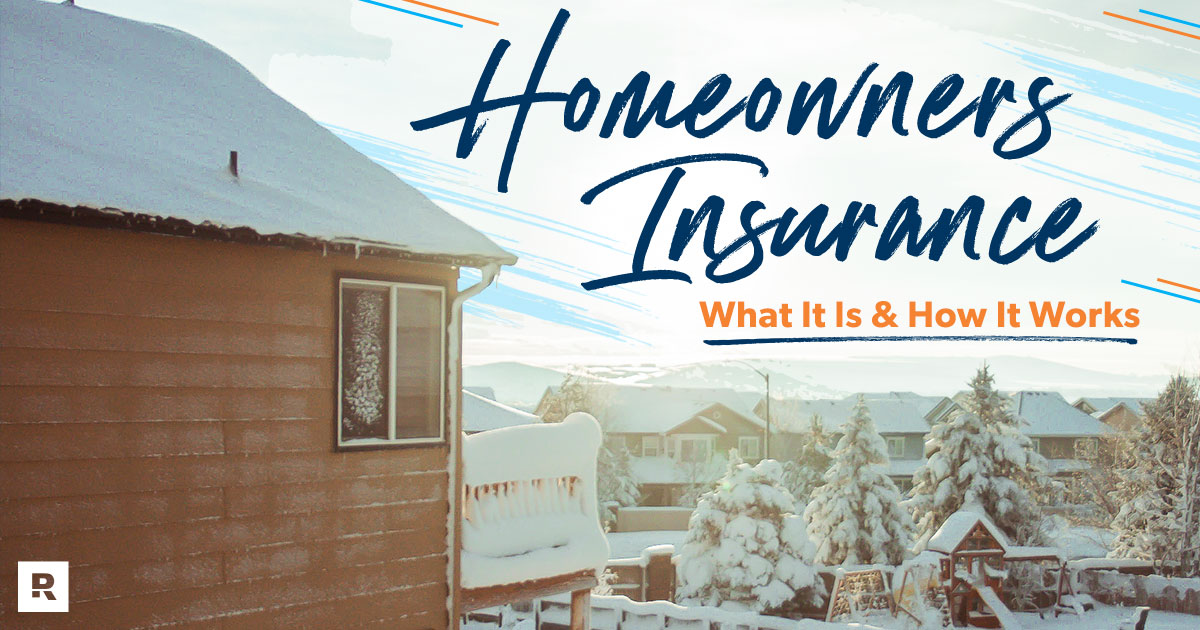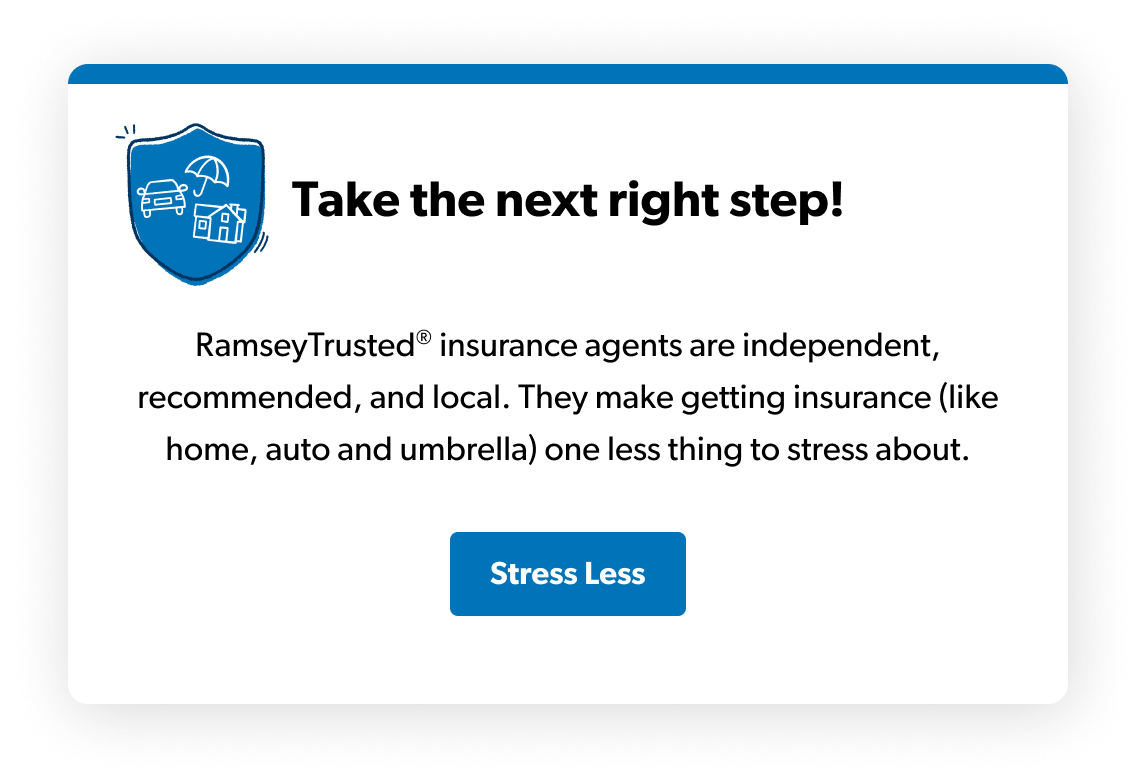What Is Homeowners Insurance and How Does It Work?
6 Min Read | May 1, 2025

So you’re shopping for a home and are starting to wrap your mind around this whole homeowners insurance thing. Or maybe you’re already a homeowner and are just trying to get a better handle of how exactly homeowners insurance works.
We get it. Homeowners insurance (actually, all insurance) can be complicated. But we’ve got you covered. We’ll break down what homeowners insurance is and how it all works. (And if you’re researching homeowners insurance because you’re shopping for a new home, check out our free Home Buyers Guide.)
Now, let’s dig in!
What Is Homeowners Insurance?
Homeowners insurance is a type of property insurance that helps pay for your home to be rebuilt or repaired if it’s damaged by things like a natural disaster or fire. It also will pay to replace your belongings in the event of a covered incident. And it will even protect you from lawsuits and medical bills as a result of accidents on (and sometimes even off) your property.
Do you have the right insurance coverage? You could be saving hundreds! Connect with an insurance pro today!
While homeowners insurance is not required by state law, it is required by most mortgage companies. So you definitely need it. In fact, it’s one of the eight types of insurance you should get. (By the way, lender's title insurance is another related policy you'll need that's required by every mortgage company.)
Homeowners insurance policies come in all shapes and sizes. There’s no one-size-fits-all policy that will repair your house no matter what. On top of your standard coverage, you can get a bunch of different add-ons (or endorsements) like flood insurance, hurricane insurance, water backup coverage and extra liability.
The average homeowners insurance annual premium is $1,015.1 But homeowners insurance costs range widely depending on your situation.
Understanding Homeowners Insurance
A typical home insurance policy covers five basic things:
- Dwelling—This level of coverage pays to repair or rebuild your dwelling (your house and anything attached to it) due to damage from disasters like fire, windstorms, hail, etc. (also known as hazards).
- Other Structures—This layer covers things other than your house. Things like a tool shed, detached garage, fence, barn, etc.
- Personal Property—Personal property insurance pays to replace stuff that’s inside your home.
- Liability—Personal liability insurance protects you from lawsuits for bodily injury, property damage that occurs on your property and even dog bites. And keep in mind that liability comes with limits to how much the insurance company will pay out.
- Additional Living Expenses (or ALE)—Additional living expenses chips in if you’re living out of a hotel while your home is being rebuilt (like after a tornado).
But understand that this is just your basic homeowners insurance “starter” package. There are some events your homeowners insurance won’t cover. (More on that in a second.)
Interested in learning more about homeowners insurance?
Sign up to receive helpful guidance and tools.
How Does Homeowners Insurance Work?
Now that we’ve answered the main questions—what is homeowners insurance?—you might be wondering, How does homeowners insurance work? Here’s a quick summary:
- You buy coverage on your own or through an insurance agent.
- You pay your monthly or annual premium.
- Your insurance company then agrees to cover you in the case of an incident.
- If something happens to your home that’s covered under your policy, you pay a certain amount out of pocket (your deductible).
- You file a claim and your insurance company will pay any costs above your deductible, up to the limit of the policy. The limit is the maximum dollar amount they’ll pay out.
- Most insurance companies take about 30 days to cut you a check, unless it’s a bigger repair like rebuilding the entire home. In this case, sometimes they’ll pay the money straight to the contractor.
- If something happens that isn’t covered, you’ll have to pay the full cost of the repair.
What Does Homeowners Insurance Cover?
So, what does standard homeowners insurance cover? Here are a couple examples.
Let’s say your second-cousin’s great Aunt is visiting from out of town. You haven’t seen her in forever—since you’ve actually never even met her. She arrives, immediately trips on your stairs, and breaks her ankle. This normally wouldn’t be that big of a deal, except she thinks you’re rich. And she considers you more distant family. So she sues. The problem is you don’t have the money for lawyers to even try to settle the case.
Enter homeowners insurance to save the day! No matter how ridiculous or far-fetched the above scenario might seem, lawsuits do happen. And they are just one of the ways your homeowners insurance policy can protect you.
Here’s another example. A tornado rips through your neighborhood and turns your roof into kindling. Thankfully, you and your family are all okay, but your roof’s destroyed. Your homeowners insurance will cover those costs so you’re not left footing the bill.
These are just two examples of things homeowners insurance covers. There are a ton of add-ons you can get to give yourself extra layers of protection. There are also some things homeowners insurance won’t cover. Keep reading.
What Does Homeowners Insurance Not Cover?
There are some huge misconceptions about what homeowners insurance does and doesn’t cover. In fact, many Americans are underinsured when it comes to their homeowners insurance. For example, typical homeowners insurance won’t reimburse you if your house is flooded. You’ll need flood insurance for that. Also mold—insurers often don't like to cover that either.
And if a big earthquake wrecks your home, your insurer isn’t going to be footing that bill either. (One exception is if your home catches on fire from an earthquake.) Home insurance also won’t cover maintenance issues, damage from sinkholes (unless you live in Tennessee or Florida) or hurricanes if you live in a coastal state.
So, depending on where you live, you might need to look into getting additional homeowners insurance to make sure you have enough.
How to Get the Right Homeowners Insurance
No matter your net worth, your home’s value or where you live, you need homeowners insurance. Bottom line. And you need enough homeowners insurance to replace your home, your stuff and to take care of any extra living expenses if you had to temporarily move out.
But how can you know you have the right coverage in place?
One way you can get homeowners insurance is by spending your evenings and weekends shopping around to find the right policy or best price (ugh). You could do this.
Or . . . you could use one of our RamseyTrusted independent insurance agents. These industry experts can shop for you (nice!) and look at your unique situation to be sure you’re not underinsured or overpaying for your home insurance.



